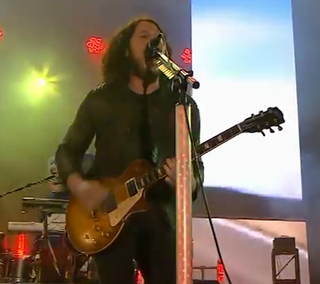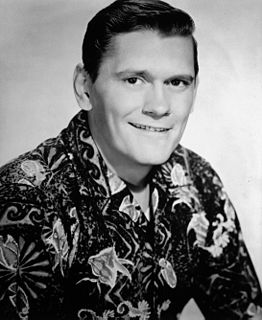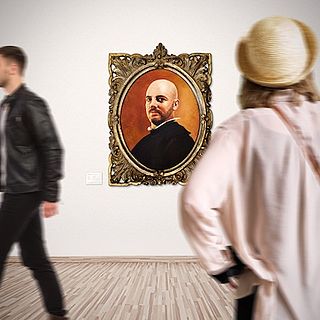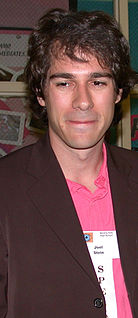A Quote by Ray Toro
There were actually times where I thought, 'Do people even remember us? Are people gonna be interested in hearing what we put out next?'And, you know, there were times I felt like, 'Are there going to be people out there waiting for this record?'. So we kind of live in a bubble, in a sense. We're very closed off to that whole world of thinking about those kinds of things.
Related Quotes
When I would work freelance in production in Chicago, there were a lot of times when I was working for cheap, bad people, and I was working for slave wages anyway, so there were some times when I might have filled out a couple of blank taxi receipts and kept some petty cash. But like I say, I was very selective. It was only people that I thought were assholes. The people that I liked I went far and above saving them money, much less taking it. But that's it. I'm pretty moral. I don't even like stealing jokes.
There have been times in my adolescence where I gave up. I was like, 'I'm just never going to be pretty. I'm never going to be like one of those people on the front of magazines.' It always seemed really strange to me that the projection of how people are in advertisements looked nothing like the people who were actually buying them. You know what I mean? I never understood that mismatch, and now I really start to see that the people you see in the media are a lot more like people actually are.
I call it "being interrupted by success." We had done The Soft Bulletin, which came out in 1999, and we knew we that were gonna make another record before too long. But in between this, we were still in this mode of kind of just - not re-creating what we could be, but kind of doing different things. For the longest time in the Flaming Lips we were like, "Make a record, go on tour. Come back, make another record," and you know, I think, frankly, we were kind of like, "There's more to life than just recording records and going on tour."
The people who seem to us to be a very tiny elite, far off and mysterious, actually live in a fairly big world. The way they look at the planet is like they're looking at an index card covered in supply routes. We protestors had imagined ourselves this huge threat. But we were at best bemusing. To the extent that the people inside did care, it was almost like we were paying them a compliment-it reinforced their sense of power.
I'm always interested in hearing how other people read and react to my songs. I hadn't thought of it in just that way. One of the things I love about doing things that are creative is that I feel like it's my right as an artist not to be affected by the reactions of those people that are going to hear my songs. But I also feel like it's the right of the people hearing them to have their own interpretations of what these songs mean. Sometimes people will see things that I don't see.
I meet so many people. I want to be genuine and open with everyone, because when I was young and just starting out, I remember I was around people who were successful, and I thought that some were kind of cool or off-putting to their fans. It always really bothered me. So I think I may sometimes go too far out of my way.
I kept saying I got sick of listening to people's productions, like people who had no ideas, no songs, nothing to say but could still con people's ears into thinking those songs were there by the application of production. I kind of wanted my record a little more honest than that: "Well, this is us. We put a microphone on it. Here it is."
I am deeply activated by a sense of history, and have been since I was a tiny child. Really feeling that these were the times, we were the people, this was the most critical time in human history. Other people thought their times were the pinnacle and this is it. This is where we really, together, make a decision of whether to evolve or perish.
It's so easy to disappear into your character because there isn't all this fuss around you, and we keep a closed set, and closed off to all crew members, even, unless we're cut. A lot of times, you're doing a scene in a movie and there are literally 35 people standing behind the camera all waiting to do their job, but here they have to be off the stage. On The Office, it is very much just the actors, a cameraman and a boom operator, like a real documentary, like we really are being documented.
Be yourself and do what you actually like doing as an artist. Don't try to think too much about where am I gonna fit in here, and how is this gonna be received, and who is gonna like this? Just do what you like doing and make sure that you enjoy doing it. If you do that and you get good at it by practising, then people are gonna come around - there's so many people out there that listen to all kinds of music. It's important to just do what you like, otherwise the fun gets sucked out of it.
He read a lot. He used a lot of big words. I think maybe part of what got him into trouble was that he did too much thinking. Sometimes he tried too hard to make sense of the world, to figure out why people were bad to each other so often. A couple of times I tried to tell him it was a mistake to get too deep into that kind of stuff, but Alex got stuck on things. He always had to know the absolute right answer before he could go on to the next thing.
People would always say horror movies always thrive during times of war; that's just what people would say. And I don't know if they thrived during World War II or Vietnam, but I thought that's kind of strange, why would that happen. I don't know if people rearrange their priorities; in good times, they freak out and start pointing the fingers at video games and TV, but when horrible things are happening in the world, a horror movie just seems a little ridiculous.




































